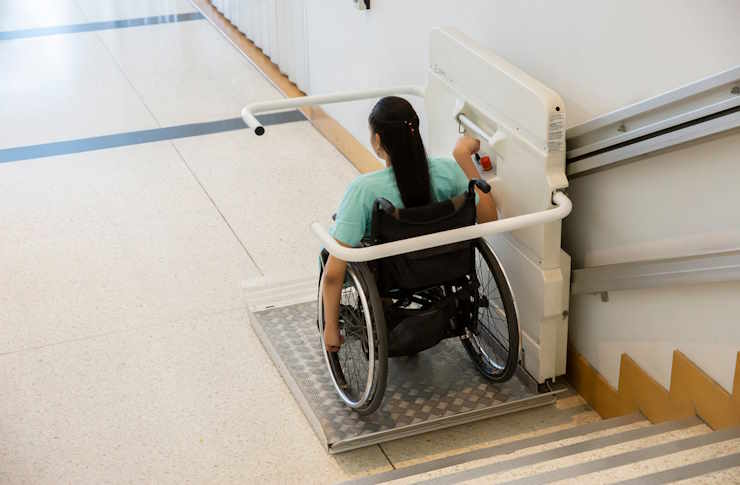Stair Lifts: A Comprehensive Guide to Mobility Solutions for Your Home
Stair lifts provide essential mobility assistance for individuals who struggle with navigating stairs in their homes. These mechanical devices offer independence and safety, allowing people with mobility challenges to access all levels of their residence without assistance. As the population ages, stair lifts have become increasingly popular home modifications that can significantly improve quality of life while allowing seniors and those with disabilities to remain in their homes longer.

Understanding Stair Lifts for Seniors: Price Considerations
The cost of stair lifts is often a primary concern for seniors and families exploring mobility solutions. Stair lift pricing varies widely depending on several factors, including the type of staircase, the length of the track needed, and additional features. Straight staircase installations typically cost less than curved models, which require custom manufacturing to match the specific contours of the stairs.
Most basic straight stair lifts start around $2,000-$3,000 for the equipment alone, while curved models begin at approximately $10,000-$12,000. Installation costs typically add another $500-$1,000 to the total price. Premium models with advanced features like power swivel seats, folding rails, or weather-resistant outdoor capabilities can push prices even higher.
Medicare generally does not cover stair lifts, though some Medicare Advantage plans might offer partial coverage. Medicaid coverage varies by state, with some offering assistance through Home and Community Based Services waivers. Veterans may qualify for grants through the VA’s Home Improvements and Structural Alterations (HISA) program.
Chair Lift for Stairs: Types and Features
When shopping for a chair lift for stairs, understanding the available types and features is crucial for finding the right fit for your needs. The two main categories are straight and curved stair lifts, but within these categories, numerous variations exist.
Straight stair lifts are designed for staircases without curves, landings, or changes in direction. These are the most common and affordable options. Curved stair lifts are custom-manufactured to navigate turns, intermediate landings, or spiral staircases. While more expensive, they provide a tailored solution for complex staircase designs.
Key features to consider include seat design (swivel seats offer easier transfers), safety sensors (stopping the lift if obstacles are detected), folding options (rails and seats that fold to save space), weight capacity, battery backup, and remote controls. Modern stair lifts often include digital displays, diagnostic systems, and even smart home integration options.
Alternatives to Stair Lifts: Exploring Other Solutions
While stair lifts are an excellent solution for many, they aren’t the only option for addressing mobility challenges in multi-level homes. Depending on your specific needs and budget, several alternatives might be worth considering.
Home elevators provide comprehensive access between floors but require significant structural modifications and typically cost $20,000-$50,000. Wheelchair lifts (vertical platform lifts) transport individuals in wheelchairs between levels and cost approximately $5,000-$15,000. Ramps offer an economical solution for small height differences but require substantial space—generally 1 foot of ramp for each inch of rise.
For some households, relocating the primary living spaces to the main floor might be the most practical solution. This could involve converting a downstairs room into a bedroom or installing an accessible bathroom on the main level. While potentially disruptive, these modifications can sometimes be more cost-effective than mechanical solutions.
Stairlift Brands and Cost Comparison
The stairlift market features several established manufacturers with varying price points and specialties. Understanding the differences between these providers can help you make an informed decision about which model best suits your needs and budget.
| Brand | Basic Straight Model | Curved Model | Key Features |
|---|---|---|---|
| Stannah | $3,000-$5,000 | $10,000-$14,000 | Industry leader, customizable options, 300lb weight capacity |
| Bruno | $3,200-$5,500 | $10,500-$15,000 | Made in USA, 400lb weight capacity on some models |
| Handicare | $2,800-$4,800 | $9,000-$13,000 | Space-saving designs, Vision diagnostic display |
| AmeriGlide | $1,900-$3,500 | $8,000-$12,000 | Budget-friendly options, DIY installation kits |
| Acorn | $3,000-$5,000 | Limited curved options | Slim profile design, quick installation |
Prices, rates, or cost estimates mentioned in this article are based on the latest available information but may change over time. Independent research is advised before making financial decisions.
Beyond the purchase price, it’s important to consider ongoing maintenance costs. Most stairlifts require annual maintenance checks costing $100-$200. Extended warranties are available from most manufacturers for an additional fee, typically ranging from $200-$800 depending on the length of coverage.
Installation and Safety Considerations for Stairlifts
Professional installation is crucial for ensuring your stairlift operates safely and effectively. Most manufacturers offer installation services performed by certified technicians who understand the specific requirements of their products. The installation process typically takes 3-4 hours for straight stairlifts and 4-8 hours for curved models.
Safety features to look for include obstruction sensors that stop the lift when detecting objects in the path, seatbelts, swivel seats that lock in position for safer transfers, footrest sensors, and emergency stop buttons. Battery backup systems ensure the lift remains operational during power outages, providing peace of mind in emergency situations.
Regular maintenance is essential for long-term safety and functionality. Most manufacturers recommend annual inspections to check mechanical components, batteries, and safety features. Some companies offer service contracts that include regular maintenance visits, priority service calls, and discounted replacement parts.
Whether you select a stairlift or an alternative solution, improving accessibility in your home can significantly enhance independence, safety, and quality of life for you or your loved ones with mobility challenges.




